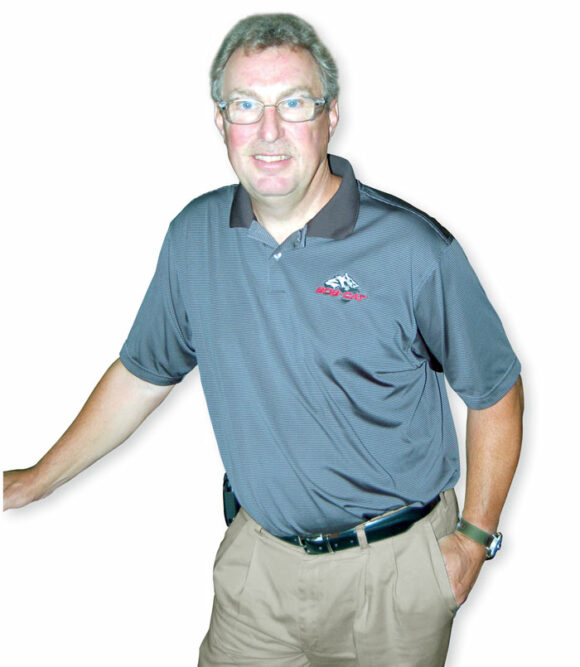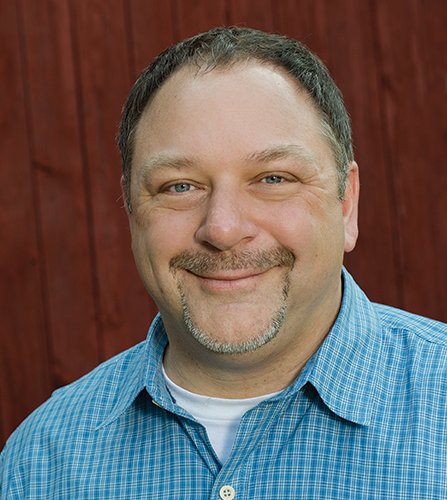Editor's Note: This article originally appeared in the Fall 2009 issue of Rural Lifestyle Dealer.
Rededicating the Brands
“Schiller Grounds Care was established January 1, 2009 by the merger of Schiller-Pfeiffer, maker of Classen, Little Wonder and Mantis gardening, landscaping and turf care equipment, and Commercial Grounds Care, which makes BOB-CAT, Bunton, Ryan and Steiner grounds care equipment.
“Since the merger, Schiller has created an individual brand-strategy business plan that starts with emphasis on brand identity and product enhancements. We’ve hired dedicated brand managers and formed a senior management team, expanded our sales and marketing teams and enhanced our web sites to offer customers a wealth of product information. We’ve also created online sales and service schools for our dealers and their technicians so that they can learn at their own pace. When we did a soft launch earlier this year for the BOB-CAT FastCat Pro 61, a commercial zero-turn mower, we developed a mini web site for that product that shows why it’s different than anything else out there. These activities drive more people to look at our stuff and head back to our dealers.”
“We’re investing a lot in product development right now, which is good because it’s really easy to get stagnant in an economy like this and not do anything.
“Some of our products fit really well with the rural lifestyle market. Steiner makes an articulating four-wheel-drive tractor with multiple attachments that fits our target customer — hobby farms and small acreages. The reason Steiner tractors have done well over the years is the capability of doing multiple tasks with them, like mowing lawns, plowing snow and pushing dirt. There are 21 different attachments for the tractor. It competes in the compact tractor market but it’s not as expensive. In the Ohio Valley, the Steiner name is well-known and well-respected.”
Growing the Dealer Network
“Right now we’re looking at increasing our number of mower dealers. I’d love to double our mower dealer network. The issue is not just adding dealers in markets where you’re already established, but also adding dealers in the places where you don’t have good market penetration.
“I don’t want us to make the same mistakes some of our competitors have made where they’ve put a dealer on every corner. That’s had a negative impact. Those dealers don’t have a market they can call their own and that makes it tough for them to stay in business. We work with our distributors to ensure each dealer has ample territory to be successful in selling our products.”
Various Ways to Distribute
“We use several different types of distribution channels based on the product. Mantis home and garden products, you’ve probably seen them in TV commercials, they enjoy a large sales and service dealer network. Mantis is also successful through direct sales (mail order and online) and through various rental and retail outlets. Steiner is sold through dealer organizations. The other products we handle are through two-step distribution.
New Products for 2010
“The BOB-CAT FastCat Pro 61 is a commercial zero-turn mower that offers high performance at a fraction of the weight of larger, harder-riding units. It makes an inexperienced operator look like they’ve been riding a machine for some time, because it’s so easy to operate. The quality of cut is phenomenal. We’re trying to position the BOB-CAT brand as being very affordable, very durable and high performance, and I think that has a lot of appeal to our customers right now.”
“We’re seeing some consolidation in distribution — fewer distributors, but with bigger territories. The dealers haven’t changed too much. We don’t actively go after dealers that only carry residential products, but we are aware that residential users are becoming a bigger part of the commercial dealers’ customer base. Our focus is commercial products and we look for dealers who can sell and service those products.”
Saying No to Big Box Stores
“A lot of our competitors have gotten into box stores. We don’t put any BOB-CAT commercial mowers or Steiner Turf Equipment into box stores. We do distribute and sell some of our products through a variety of sales channels, but our commercial equipment is sold through commercial dealerships. They support our commercial lines with service and we support the dealer through territory protection, which offers customers the best possible service after purchase.
“Everybody in our organization has a different view of box stores. My view is that I don’t want to irritate our dealers. I’ve resisted them and sometimes I get criticized for it.
“We’re investing a lot in product development right now, which is good because it’s really easy to get stagnant in an economy like this and not do anything…” – Tony Weber, Brand Manager, BOB-CAT, Schiller Grounds Care, Johnson Creek, Wis.
“There are very few box stores that have the capability of taking care of a product after the sale, so you need a dealer organization to do that. A lot of dealers I’ve talked to are now embracing box stores and they do really well with warranty work and parts sales.
“Depending on the area, many dealers remain steadfast that they will not service equipment purchased from a big box store.”
Reaching Out to Consumers
“We know a lot of our commercial mowing products are attractive to residential customers because they see value in the durable, robust designs and simplicity of operation, and the speed and quality of cut.
“We’ve positioned some products so the consumer has the opportunity to get commercial-grade equipment at a little lower cost. What drives some consumers is they may have gone to a box store early and bought a $2,995 zero-turn and had it for a couple of years before it had to be replaced.
“Instead of going to a box store, they go to a dealer, who tells them if you want a good product you will pay a little more for it, but it will last you longer.
“We will take a product and use a more affordable engine solution, instead of a full-blown commercial engine. For a residential customer, that isn’t going to have a lot of impact on them because of the limited number of hours they’re going to run the machine. We try to go where we can get a little more affordability by trading some longevity. Most commercial engines are designed to run 2,000-3,000 hours. For a residential customer, 500 hours in a mower’s lifetime is going to be extremely long. We don’t want to cheapen the product, just give customers features that are going to mean the most to them.”
Dealers Are the Key
“I firmly believe the dealer makes or breaks you, because if he’s not happy with your product or doesn’t think he’ll make money with it, he’s not going to sell it. It’s as simple as that.
“We’ve got to give the dealers as many tools as we can, including service training, sales training, retail financing, marketing and promotion. We’ve got to help them as much as possible so they can be more profitable.
“One of the comments we hear is that there’s not as much brand loyalty out there anymore. That’s a scary thought, that you’ve pushed dealers to where they feel there’s no option but to go with someone else. I don’t think we treat our dealers like that. We’re just the opposite. People are starting to find out why BOB-CAT is an up-and-comer and why we’re promoting that brand. I don’t know how many times I can say it: The dealer is the key.”
Thoughts on Consolidation
“You’re going to see more consolidation. Based on what I’m seeing in the field, I don’t know how some manufacturers in the commercial field are going to survive.
“We’re very lucky. We’re very financially sound. We’ve got a very good control on inventory in the field, and we’re in a pretty good position going into next year.
“A lot of manufacturers are in the opposite situation. They’ve got too much inventory and their dealers are angry. Floorplanning costs are up, and the more inventory you throw on top of that the worse it gets. Are we going to lose some manufacturers? I believe so. It could be consolidation, or it could be some brands that just disappear.”






Post a comment
Report Abusive Comment